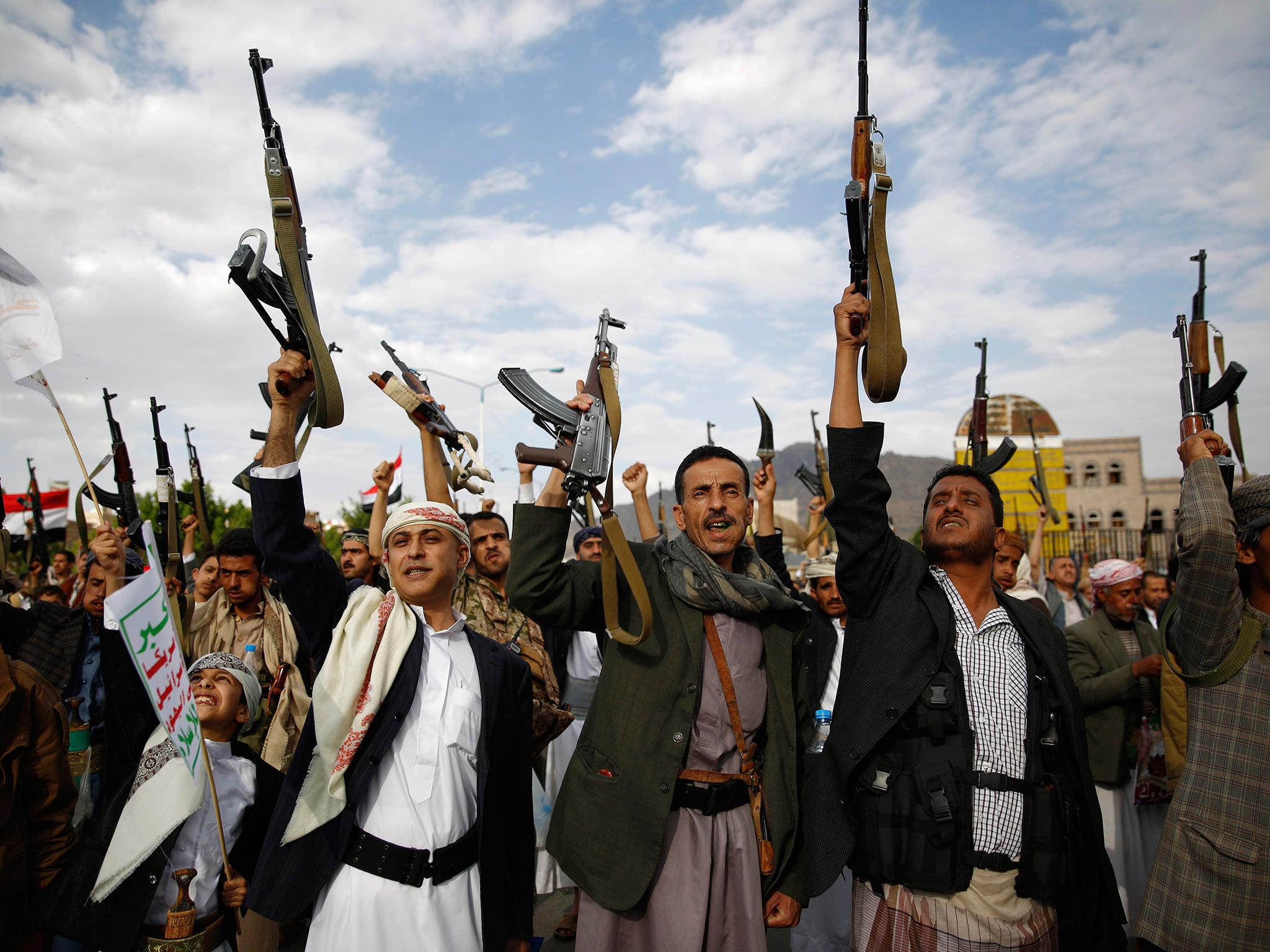Yemen conflict: Is there a glimmer of hope for Yemeni civilians as Iran enters a new era?
Diplomatic Channels: While joining the anti-Isis coalition is an aspiration for Tehran, getting a peace deal in Yemen is viewed as priority

The bloodshed in Yemen, now going on for a year with thousands killed and injured and millions facing famine, has been portrayed as a conflict between Shias and Sunnis. The Gulf States, especially the Saudis, declare that it is the result of a Houthi rebellion orchestrated by Iran.
In reality, it is more complex than that. The Houthis have ignored advice from Tehran in the course of the strife and Tehran’s support for the Houthis may well be more flexible than hitherto thought. Theologically, the majority of the Houthis are Zaidis and Zaidism is considered to be the branch of Shia Islam with the least doctrinal dispute with Sunni states like Saudi Arabia. The Houthis are allied to former president Ali Abdullah Saleh, who is also a Zaidi, but has been backed by Riyadh in the past against a previous Houthi uprising.
All this is relevant because the Iranians are launching a new ceasefire initiative in Yemen. This is part of a significant rejig of foreign policy following the agreement on its nuclear programme with world powers. Tehran also wants to join the anti-Isis coalition and repair relations with the West, the latest manifestation of which is the resumption of full diplomatic relations with Britain with the embassies being opened in London and Tehran.
Foreign Minister Mohammad Javad Zarif has been on a tour of Sunni Kuwait and Qatar, while his deputy, Hussain Amir-Abdollahian, made an unexpected trip to Saudi Arabia. But while joining the anti-Isis coalition is an aspiration for Tehran, getting a peace deal in Yemen is viewed as priority.
In April, the Saudi-backed Yemeni government of Abdrabbuh Mansour Hadi rejected a four-point plan put forward by the Iranians, with Western diplomats declaring that Tehran could not be regarded as an honest broker. But things have changed since then and following the nuclear deal, John Kerry, the US Secretary of State, highlighted the Yemen conflict as one which could be settled with the co-operation of Tehran. At the same time, the Russians, who have started holding talks with the US and the Saudis on Syria, are pressing the Iranians to help a settlement in Yemen.
The impasse on the ground may also help pave the way to a ceasefire. Five months of Saudi air strikes has not broken the Houthis, and plans for a land assault ended when the Egyptians, who were meant to lead it, quietly bowed out. Cairo now wants to build rapport with the Iranians and has offered to help foster relations between Tehran and Riyadh. At the same time, the government forces and Sunni tribesmen have done unexpectedly well against the Houthis.
Meanwhile, Yemen is now hosting not just al-Qaeda in the Arabian Peninsula – the busiest and the most dangerous of the al-Qaeda franchises, which until his rescue this week held British hostage Robert Semple – but Isis as well. Ongoing turmoil will aid the terrorists and they are a lot nearer to Saudi Arabia than they are to Iran.
The Houthis disregarded Tehran’s recommendation to slow down their advance and the Zaidis are not bound by the strictures of the Iranian ayatollahs. But the Iranians have armed them (although not on the scale that the Saudis claim) and curtailing that supply will cause their fighters real problems. In return for such a curb, Tehran may seek the support of the Sunni states and the West for the next set of peace proposals they put forward.
Paul Salem, of the Washington based think-tank, the Middle East Institute, points out that Iran has much looser control over the Houthis in Yemen than with militias in Syria and Iraq, and thus has a weaker hand. “Yemen is not a fight they can win. So they may want to show that they are being helpful, it’s a kind of freebie”, he held.
There is no reason to think that old style realpolitik will not be a key part of Iran’s new-look foreign policy.
Subscribe to Independent Premium to bookmark this article
Want to bookmark your favourite articles and stories to read or reference later? Start your Independent Premium subscription today.

Join our commenting forum
Join thought-provoking conversations, follow other Independent readers and see their replies